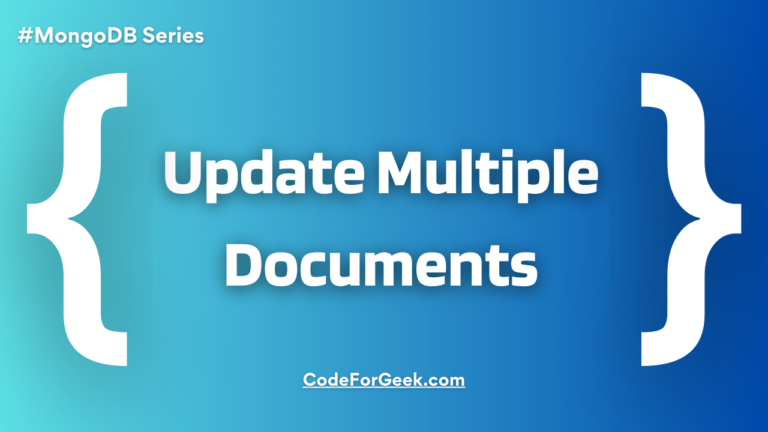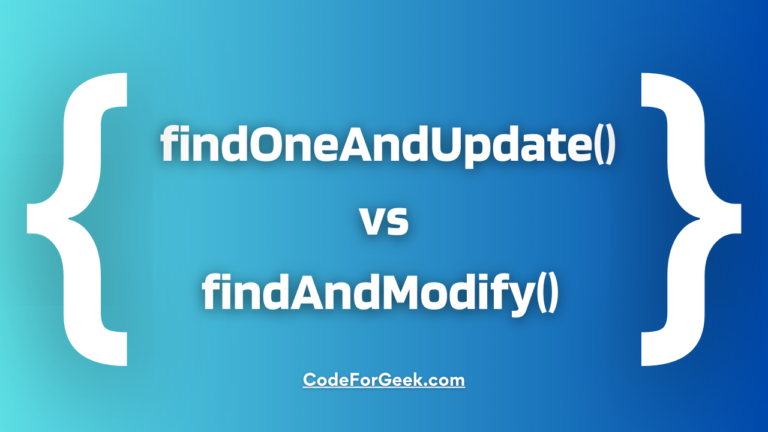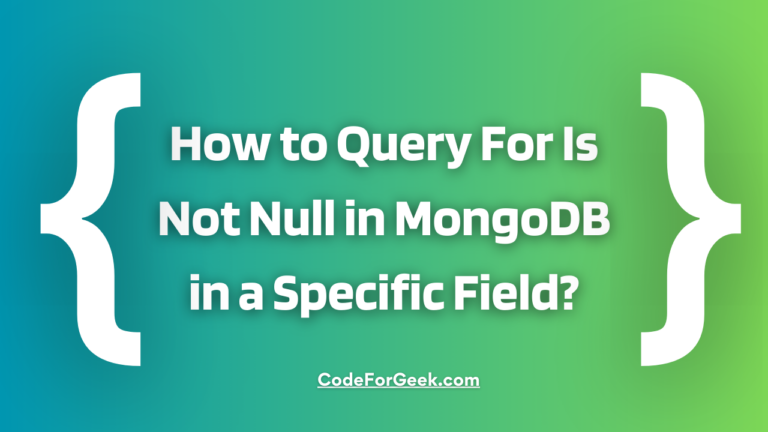New to Rust? Grab our free Rust for Beginners eBook Get it free →
Top 8 MongoDB Hosting for Small Enterprises

MongoDB is a popular NoSQL database trusted by over 40 million customers according to the DB engine monthly ranking report. Its database is integrated with a strong partner network and a collaborative developer community for creating supportive environments. Especially the developer adoption has increased in the last few years because of its ease of use in database management. Similarly, enterprise adoption has been rapidly increasing because of companies fall in love with its extensive range of use cases, which enables to simplify the complex algorithms in databases. As a result, MongoDB is constantly growing as an enterprise technology model for businesses that are building modern applications.
The main advantage of MongoDB is to write the data faster than the general database. In the working type that primarily writes more extended data such as collect log always in real-time and immense data. so, most of them prefer MongoDB as their good choice.
MongoDB is a non-relational database structure (NoSQL). It is one kind of storing unit to store data that depends on a JSON like a format called Binary JSON (BSON) to store, secure, and access the information. MongoDB is a very lighting-fast and highly efficient system, perfectly suited for the expansion of your company, and future growth.
Unique Features of MongoDB
1. Multi-document ACID transactions
2. WiredTiger Storage engine
3. Fully expressive joins, graph traversals and Aggregation pipeline and introduced extensive 4. range of new query operators.
When to Use MongoDB?
1. Dynamic Query & Data
If your data is different and your queries are not mentioned in progression, then MongoDB is an excellent option for your database.
2. Large input load
If your application requires to input a vast amount of critical and non-critical data, then managed MongoDB hosting is a better option.
3. Elastic Scalability
If your company/organization requires additional scaleup in size of 10GB, then managed MongoDB is hosting is an excellent choice for extending the database.
4. Data Locality
If your web application needs to access location-based data, then MongoDB managed hosting is preferred.
Benefits of Using Cloud Hosting
1. Disaster Recovery
Backup is becoming a buzzword in the growing tech world. So, in order to keep important files, safe backup is necessary, which helps a company to gain confidence that they are ready to face any kind of disaster recovery events. But, our shared MongoDB hosting will automatically backup data through a custom schedule.
After the occurrence of an event, MongoDB hosting enables one policy “one-click restore” for any kind of data backup from the data center or system. Furthermore, it offers another benefit called “backup peeks”, this helps you in backing up and recovering information without affecting the main cluster.
2. Automatic and Dynamic Scaling
One of the top benefits of MongoDB cloud hosting is automatic scaling and monitoring the size of your clusters. This type of scaling usage helps you mainly in not running out of the storage space. Moreover, this automatically scales RAM and CPU as the information in the MongoDB clusters scales.
3. MongoDB versions Automatic updates
Updated to the latest versions will enhance the performance of the database. We all mostly think of any issue will occur if we install this! So, we need to have thought that if we update to latest versions we can make use of new features.
Automatic updating of the present version to the latest version is the key benefit for MongoDB upgraders. This saves time and the user won’t get disturbed or hassle during the entire process of up-gradation.
4. High Availability
One of the astonishing benefits of shared MongoDB cloud hosting is that users can deploy replica sets for high availability. This is done in order to make sure that your application is safe and protected against possible failures.
This replica set plays a major role in cloud hosting. It is built using each node that is present in various data centers or availability zones within the selected cloud provider.
5. Database Monitoring
Data monitoring is one of the most fascinating benefits because those who use shared MongoDB cloud hosting will have automated data monitoring for their databases. This feature is more profitable for top MNCs those who don’t have enough time to monitor their respective clusters closely. By using data monitoring technique most of the companies get benefited by getting notified of any changes or issues related to their hosted clusters.
Today we are going to discuss 8 best MongoDB hostings for small enterprise
Let us start,
1. NodeChef 390
NodeChef is one of the most popular MongoDB databases that usually runs on bare metal with efficient storage capacity, CPU, and local SSD. This is faster and more effective when compared to other shared MongoDB hostings. NodeChef shared MongoDB hosting starts at $9 USD per month. It even provides support for SSL encryption on the wire. NodeChef MongoDB deployments provide developers with a way to focus on application development and guide them to avoid unnecessary work on capacity planning.
NodeChef is the only one that is managed by MongoDB offering this makes continuous backups from the databases on an hourly basis. This provides huge data security at a particular instance.
Key Highlights
- Application performance monitoring
- Rolling code updates
- Flexible and fully optimized
- Allows continuous backup
- Dynamic scaling
- export and import tools
- enhanced support for JSON and CSV formats
- Automatic indexing of databases
2. ScaleGrid
ScaleGrid offers you a full-fledged Database-as-a-Service (DBaaS) solution which is deployed and used by many startups, organizations, enterprises, and many more. This platform supports various databases including PostgreSQL, Redis, MongoDB database, and so on which are present on both private and public clouds. This shared hosting automates your most time-consuming tasks at any cost so this makes you concentrate on your projects and products instead of unnecessary operations.
Key Highlights
- Custom replica set configurations
- Manual scaling
- Improve reliability and performance
- Extensive user access
- Support for virtual private cloud
3. M-Clusters
M-Clusters referred to as Mongo-Clusters. M-clusters is specialized in managed MongoDB hosting in the cloud environment. It has trustworthy and hosting providers at a low price.
Mongo Clusters is fully managed MongoDB hosting on Kubernetes Cloud. It is MongoDB as a service and supports smooth migration, customization of cloud applications, and management for medium and small businesses.
Key Highlights
- Data durability
- Elastic Scalability
- Availability of powerful dashboard for troubleshooting and monitoring MongoDB.
- High security
4. A2 HOSTING
A2 Hosting is a popular web hosting service provider, and it provides hosting “by developers ‘for developers'”. It was originally founded in 2001 Iniquinet and later changed to A2 hosting in 2003.
A2 provides an extensive range of spectrum of services viz. cloud sharing, shared hosting, reseller hosting, and dedicated hosting. It supports most popular content management platforms including WordPress, Joomla, Drupal etc. A2 hosting perfectly suites for startup enterprises, blog owners, and including medium-size organizations.
Key Highlights
- SSD Speed Boost
- Server location options
- AnyCast DNS
- Website staging
- Quadruple Redundant Network
- Spam Protection
5. MongoDB Atlas
MongoDB Atlas is the global cloud database hosting service provider is to build modern web applications. It is fully managed with MongoDB and available across Azure, GCP, and AWS. Atlas provides customized automation to enhance scalability and compliance with privacy standards and data security.
MongoDB Atlas provides a wide range of drivers, tools, and integration techniques to develop/build effective databases in less time with easy management.
Key Highlights
1. Cloud features like Global Clusters and real-time triggers:
It supports 60+ cloud regions across the world like Microsoft Azure, Google Cloud Platform, and Amazon Web Services.
2. Enhanced security from the beginning:
Atlas integrated with built-in security controls to satisfy your pre-defined compliance standards and existing protocols.
3. Enhance Developer Productivity:
Developers may be able to build applications quickly using with integrations, native tools and drivers to visualize, analyze, and manipulate your stored data.
4. Management tools for OPS automation
5. Previous deployments will easily migrate in minimal time
6. Advanced database backup options
6. mLab
mLab is a cloud database service and it is fully managed by MongoDB databases. mLab is available on various cloud service providers such as Microsoft Azure, Amazon, Google Cloud Platform and partnered with PaaS(Platform as a service provider).
mLab offers different types of database plans to suit a variety of data workloads, data sizes, and stages of development. It has provided single-node databases and deployments of multi-node clusters along with other storage options. mLab provides 500MB database storage for free.
A mLab is software integrated network and private environment to perform multiple mLab hosted MongoDB deployments. It is primarily used to communicate between your database and private networks. It is called Database as a Service for MongoDB
Key Highlights
- Data Backup & Recovery
- 24*7 Monitoring tools
- Enhance Security Options
- Data Browser for managing data
- World-class Database support
7. KAMATERA
Kamatera managed hosting service is an add-on service, primarily used to maintain your cloud infrastructure. It allows you to use cloud computing benefits without having any complex support. Managed cloud service is designed to save time and efforts to minimize many of the tasks.
Kamatera’s Managed cloud service gives tailor-made solutions for better cloud infrastructure and performance. It also supports and monitors your servers from our Network Operation Center(NOC) on a 24/7 basis.
Kamatera is a global cloud services platform provider. It provides enterprise-grade cloud infrastructure for enterprises and organizations of all types.
Kamatera provides cutting edge high-quality cloud services for enterprises with the most advanced technologies and a high level of customer support.
Kamatera is about to add load balancers, private networks, and firewalls more quickly. It runs on any Linux and Windows operating system versions. Kamatera scales out to more no. of servers in seconds. Kamatera primarily built for high-end data centers. Guaranteed uptime 99.95%.
Key Highlights
- Unlimited Scale-Out and Scale-Up
- Simple API and Management Console
- Enhanced support
- Fastest Intel Xeon Gold Processors
- SSD Storage
- Deploying your servers in minimal time
8. Compose
Compose is a Database-as-a-Service and private platform for securely managing and hosting dedicated and shared MongoDB services. Compose is currently integrates with four Platform as a Service provider.
Compose delivers MongoDB in single shared configuration, three data node with two mongos handling incoming SSL connections. It is ideal for developer teams who want to spend more time developing their application and minimal time for capacity planning such as database size, etc. It offers automatic backups, monitoring, robust security, and replications.
Key Highlights
- Integrated with Robust API’s
- One-click Deployments:
Deployment of the new database is an easy task compared to other database resources. - Auto Scaling:
If data in increases over time, it is automatically adding additional resources for your needs to produce lightning-fast speed and performance.
Conclusion
The adoption rate of MongoDB has been increasing over the years due to its flexibility and easy data write capability. Different enterprises have different needs and selecting the best suitable MongoDB hosting plan would help them in achieving their database goals.




